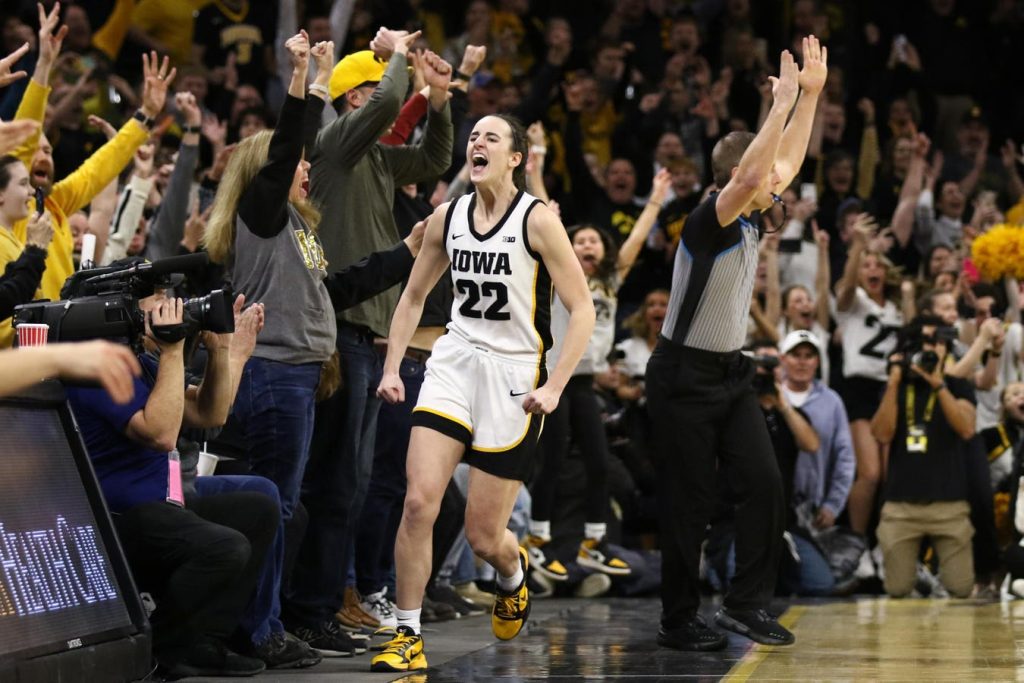Iowa superstar Caitlin Clark shone both on and off the court during the Hawkeyes’ run to the NCAA women’s championship game. With her impressive performance, she garnered national attention, commercial endorsements, and even found herself at the center of sports betting discussions. NCAA president Charlie Baker expressed concern over the focus on gambling lines involving Clark’s performance, particularly proposition bets where gamblers can wager on a player’s individual statistics during a game. Baker emphasized the need to address the issue of student-athletes being surrounded by classmates who bet on sports and the potential impact on their integrity.
The NCAA is actively lobbying states to limit prop betting and taking steps to monitor and address inappropriate behavior related to sports gambling at major championships. Bettors heavily favored Clark in her Final Four games, with lines available on various aspects of her performance such as points, rebounds, assists, and three-pointers. The popularity of betting on Clark’s performance highlights the growing influence of sports betting on college athletics and raises concerns about its impact on student-athletes. Baker stressed the importance of taking the noise surrounding prop betting seriously and implementing measures to protect the integrity of college sports.
In addition to addressing sports betting issues, Baker discussed the NCAA’s new media rights deal with ESPN and its involvement in Name, Image, and Likeness (NIL) regulations. The eight-year, $920 million media rights deal with ESPN has drawn some criticism for not maximizing the value of the women’s tournament this year. Baker highlighted ESPN’s commitment to promoting and enhancing visibility for various NCAA tournaments, including women’s basketball. He emphasized the significant opportunities presented by the partnership with ESPN and the need to continue investing in promoting and growing college sports across different disciplines.
Baker also touched upon the NCAA’s efforts to regulate NIL distributions, citing the case of Zach Edey, who was unable to take advantage of NIL opportunities due to attending Purdue on a student visa. The NCAA aims to create a more accountable framework for NIL activity and ensure that Olympic sports and women’s sports are included in discussions surrounding NIL regulations. Baker emphasized the importance of addressing these issues in collaboration with Congress to enable a more inclusive and transparent approach to NIL regulations within college athletics.
Overall, Baker’s statements underscore the complex challenges and opportunities facing the NCAA in the realm of sports betting, media rights deals, and NIL regulations. As college sports continue to evolve and attract widespread attention, it is crucial for governing bodies like the NCAA to navigate these issues while upholding the integrity and values of amateur athletics. By actively engaging with stakeholders, implementing surveillance measures, and advocating for responsible gambling practices, the NCAA aims to safeguard the well-being and reputation of student-athletes while maximizing the potential for growth and development within college sports.


